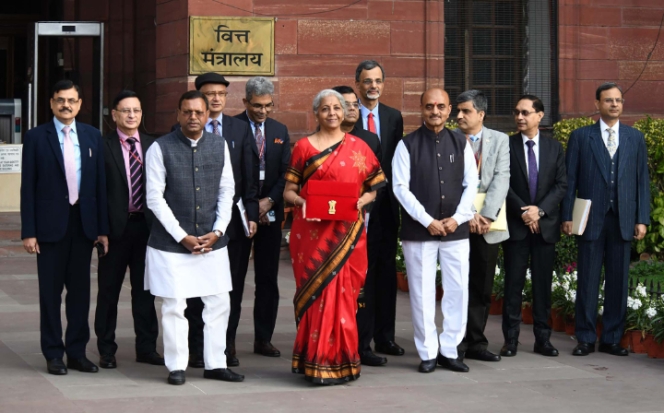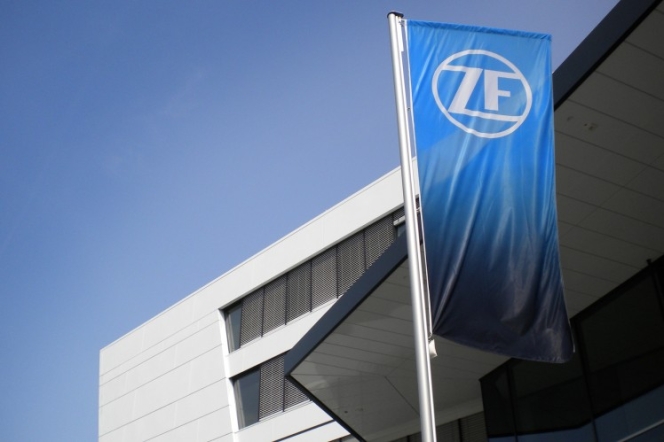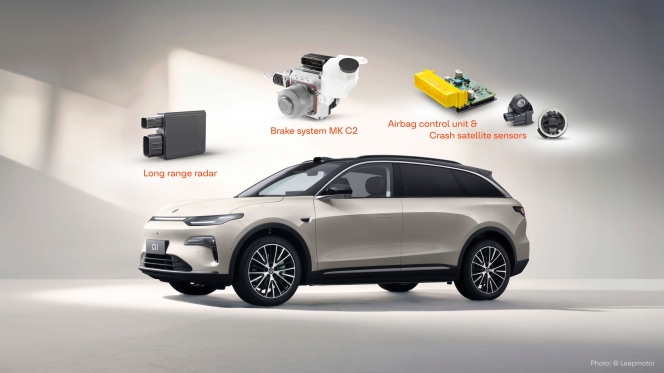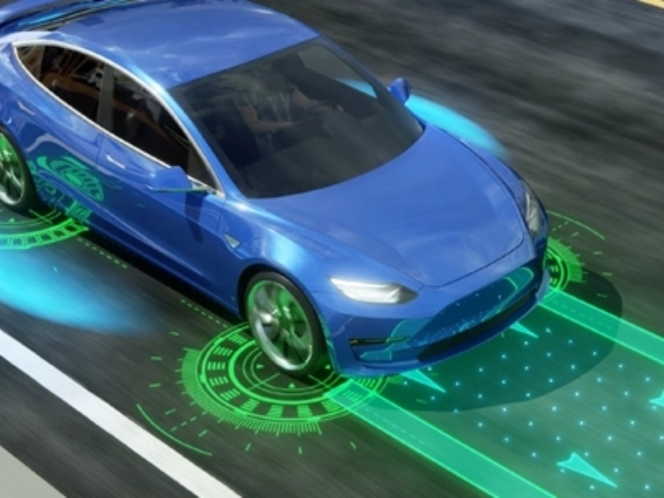
Reactions to the Union Budget 2023 have been fast and thick coming. They are appreciative of the Government’s focus on carbon-free environment. On the focus in salaried middle-class who would see a relative rise in their disposable income. If that would materialise into a rise in vehicles sales or be spent towards the high cost of groceries and other such essentials, including the school fees of their children is something that will be clear over a period of time. Time will also tell if the positive intentions of the budget will actually inspire the people of the country to fulfil their aspirations by purchasing a personal set of wheels whose cost has continued to rise and is considered by many to be today at an exorbitant level. While the higher initial acquisition cost of EVs is understandable, that of the fossil-fuel powered vehicles is getting hard to justify even if it were to be adjusted against inflation, mentioned an industry observer. Automotive prices are getting well beyond the purchasing power of a larger section of the aspiring population in India, he added. The overall ownership cost of an automobile has also risen quite some in the last two years. A major chunk of the operating costs is now accounted for by the record high fuel prices. The cost of CNG too is claimed to be high and proving detrimental to the business, according to a transporter who recently bought a few CNG trucks for its fleet in a bid to offset the high operating costs of a diesel vehicle.
Expressing that he thinks of the Union Budget 2023 to be growth-oriented, Shivaji Waghmare, CEO, Fuji Electric India Pvt Ltd, expressed that it strikes a balance between economic growth and social welfare. “It is great news that the budget has provided INR 350 billion priority capital investment towards energy transition and net zero objectives, and energy security,” he added. Appreciating the move to extend customs duty exemption to the import of capital goods and machinery required for manufacturing of lithium-ion (Li-ion) cells for batteries used in EVs, which would reduce the production cost and lower the cost of EVs, Waghmare said, “The manufacturing credit guarantee scheme for MSME is another laudable step. Youth have to be skilled to compete in Industry 4.0 and a lot of measures are being taken to make Indian youth market-ready,” he elaborated.
Mahesh Babu - Chief Executive Officer, Switch Mobility Ltd, averred, “The government’s focus on infrastructure with enhanced capex of INR 2700 billion for roads and highways and the budgetary allocation for vehicle scrappage will certainly accelerate the growth of the CV market in India. In the EV sector, the government’s move to provide customs duty exemption for import of specified capital goods and machinery required for manufacture of lithium-ion cells for batteries is a welcome move, that will play a vital role in making local cell manufacturing cost competitive in the long run.”
Kapil Shelke, Founder and CEO, TORK Motors, mentioned, “The changes in the income tax slab structure have enhanced the purchasing power of the populace. This move will encourage the adoption of cleaner, cost effective means of travel for their daily commute and the availability of FAME-II subsidy will further boost the sales of electric vehicles in the coming fiscal. Additionally, the extension on customs duty on the import of capital goods and machinery for developing lithium-ion cells would also enable EV manufacturers to localise their products in the long term, leading towards reduction in the cost of an electric vehicle for the consumer in the years to come, particularly for a brand like ours that are 95 percent indigenously manufactured in India."
Venkatram Mamillapalle, Country CEO and Managing Director, Renault India, expressed, “The Union Budget brings cheers to the automobile industry as it will positively give push to sales. The budget has laid special emphasis on vehicle scrappage policy, which will not only boost sales but will also enable in achieving clean and green environment for overall sustainable development. The customs duty exemption being extended to capital goods and machinery required for the manufacturing of lithium-ion batteries used in EVs is a boost for companies that are or would be manufacturing EVs vehicles locally. It will also help reduce the cost of EVs.”
Anirudh Bhuwalka, CEO, Blue Energy Motors, said, “The government’s focus on green mobility will provide a boost to the automobile sector and other segments which are in line with the mission to provide green solutions. The exemption on the excise duty on GST on compressed biogas and import of capital goods and machinery for batteries used in electric vehicles will propel the growth in the segment and enable industry players to further enhance their productivity. The collective efforts of the government and industry players will help the government achieve its vision to become Net-Zero by 2070.”
Nemin Vora, CEO, Odysse Electric Vehicles, mentioned, “With the budget announcement completed, we can see the emphasis on this year's budget on wider adoption of Electric Vehicles for public as well as private use. The introduction of the National Hydrogen Mission in India is a huge step towards making the country greener and more sustainable. Government's decision to increase the income tax rebate limit on personal income from INR 500,000 to INR 700,000 in the new tax regime is a welcome step for the middle-class citizens. This step is likely to help the sector as more disposable income with salaried customers may give supplementary push to demand for personal vehicles.”
Sohinder Gill, Director General, Society of Manufacturers of Electric Vehicles, averred, “After passing through a difficult period of lack of good quality” Made in India” EV components for the last 2 years, the local supply chains are beginning to take shape and the increase in customs duty on SKD/CBU is therefore timely as it will further incentivise the local suppliers because of the relative price advantage. There are still many a parts of EV componentry such as lithium cells, permanent magnets for electric motors, semiconductors, etc., that will need to be imported and we expected rationalisation of customs duty on such essential imports help keep the EV prices in check. The continuation of the customs duty-free status for machinery used to produce lithium-ion batteries could result in some stabilisation in battery pricing.”
Satyakam Arya, Managing Director and CEO, Daimler India Commercial Vehicles, said, “The FY 2023-24 Union Budget shows consistency and an intent for growth. The 33 percent increase in capex outlay underlines the fact that the budget is pro-growth and the increase is to step up on the 7 percent growth achieved in the previous fiscal. Main highlights which stood out for us as a commercial vehicles manufacturer was the eye on digitalization by leveraging 5G, which can help optimize costs and improve efficiency in the sectors it is implemented; the INR 195 billion outlay for green hydrogen development is a step in the right direction for the future of heavy-duty trucks and largely, the logistics industry; INR 350 billion for renewable energy transition projects is also an interesting initiative but how this pans out in the medium term will mark its significance; the PM Awas Yojana that is planned for boosting rural housing would create more jobs and bring more projects for the CV industry.”
Dr Anish Shah, Managing Director and CEO, Mahindra Group, expressed, “This is an outstanding budget as it is disciplined, growth-oriented, inclusive and sustainable. The steep increase in capex, to the tune of Rs 10 trillion will ensure the continuum of cyclical recovery. Capex spending is good because it has a higher multiplier effect: every Rupee spent on capex has a multiplier of INR 3 as compared to just about INR 0.9 for revenue expenditure. That apart, higher capex also creates jobs in the hinterland. The focus on core infrastructure, including increased funding for railways and clean energy, as well as the government's ambitious plans for the agricultural sector, will help to improve rural incomes. It is encouraging to see the government setting the pace for climate action by announcing a ‘green budget’ that will pave the way for a greener, cleaner planet.”
Kunal Chandra, Co-Founder, Astro Motors, mentioned, “We are pleased to see the Government's continuing efforts to stay committed to green energy initiatives, making it one of the key points in this budget. The reduction of duties on lithium-ion cells from 21 percent to 13 percent will further boost the domestic manufacturing in India and make it cheaper for Indian consumers to own electric vehicles. The Monterey support in these growth sectors will definitely increase the adoption of electric vehicles at a faster pace and help us on our journey to achieve carbon neutrality."
Santosh Iyer, Managing Director & CEO, Mercedes-Benz India, averred, “The Union Budget 2023 should drive demand as it focuses on boosting consumption by increasing the disposable income of taxpayers. Further, an increased capital expenditure on infrastructure, particularly roads, should also create demand for the automotive sector. The change in basic custom duties is however going to impact the pricing of some of our select cars like the S-Class Maybach and select CBUs like GLB and EQB, making them dearer. However, as we locally manufacture most of our models, this will not affect 95 percent of our portfolio.”
Ketan Mehta, CEO and Founder, HOP Electric Mobility, said, “A largely all-encompassing inclusive budget offers something to cheer about for all sectors; emphasis on rural development – where resides the real ‘Bharat’, and Green sustainable climate consciousness is growth focused for a bright future. The Budget will drive economic growth, create jobs and attract investments. Pushing investments in sectors such as agriculture, fishery and cattle, and supporting procurement of components for electric vehicles, and focus on clean energy and fuels like Hydrogen will significantly enhance the prospects of segments that were in need of attention.”
Of the opinion that an exceptional budget has been presented by balancing the need for sustaining rapid growth, while maintaining an eye on fiscal prudence, Vikram Gulati, Country Head and Executive Vice-President, Toyota Kirloskar Motor, said, “An outlay of INR 10 trillion towards capex which represents 3.3 percent of the GDP and a 33 percent Y-o-Y increase will definitely contribute to a robust economic growth. While doing so, the Government has aimed at a fiscal deficit target of 5.9 percent for the upcoming year with a clear glide path to bring the fiscal deficit below 4.5 per cent of GDP by 2025-26.” “The Budget which not only focuses on inclusiveness, youth empowerment and skill development, but also aims to give impetus to “Green Growth” with sufficient outlays for supporting the recently announced National Green Hydrogen Mission, doubling of allocation for FAME 2 scheme and for providing viability gap funding for Battery Energy Storage System (BESS),” he added.
ZF, BMW Sign Long-Term Supply Agreement For Drive Technologies
- By MT Bureau
- February 03, 2026

German tier 1 supplier ZF Friedrichshafen and the BMW Group have entered into a long-term supply agreement for passenger car drive systems. The contract, valued at several billion euros, extends until the late 2030s.
The agreement focuses on the supply and continued development of the 8-speed automatic transmission (8HP). The partners aim to support low-emission mobility and maintain technological flexibility during the industry transition.
A central component of the partnership is the technical evolution of the 8HP transmission kit to meet the requirements of electrified drives. The development will focus on increasing efficiency and performance for future vehicle concepts.
Mathias Miedreich, CEO of ZF, said, “Together with BMW, we are sending a strong signal for innovation, efficiency, and sustainability in an industry undergoing dynamic change. This agreement highlights the strategic importance of our 8-speed automatic transmission as a key technology for the transformation of drive systems.”
The duration of the contract provides both ZF and BMW with planning stability in a changing market. ZF aims to strengthen its position as a system supplier while reducing risks through close collaboration with the carmaker.
Sebastian Schmitt, Head of ZF's Electrified Drive Technologies division, explained, “The new agreement with BMW shows how important long-term planning horizons are for technological advancements. It creates clarity and stability for both companies and enables us to align the next generation of the 8HP specifically toward efficiency, performance, and long-term viability.”
Leapmotor Selects Aumovio For Safety Technologies
- By MT Bureau
- February 02, 2026

Aumovio has entered a supply agreement with Chinese electric vehicle manufacturer Leapmotor to provide safety components for the carmaker’s B and C platforms.
Several models within Leapmotor’s B platform now utilise Aumovio's long-range radar, electric parking brake and airbag control unit (ACU). Models on the C platform, including the C10, C11 and C16 SUVs, feature the latest generation of the MK C2 one-box brake system, alongside the long-range radar and ACU.
The project was completed with a development cycle approximately one-third shorter than traditional automotive timelines. Aumovio attributed its speed to ‘local-for-local’ strategy in China, where the company operates 20 sites and employs around 10,000 staff. In 2024, Aumovio held a 14 percent share of market revenue in the region.
The supplied technologies include:
- MK C2 Brake System: A unit combining the master cylinder, electronic brake system, and brake booster. It is produced locally in Shanghai.
- Long-Range Radar: A sensor with a detection range of up to 280 metres, used for driver assistance across both platforms.
- Airbag Control Unit (ACU): Integrated with crash satellite sensors, these components are manufactured in Changchun.
Boris Mergell, Head of the Safety and Motion business area at Aumovio, said, “Pairing ‘China speed’ with ‘German quality’ technologies helped us to support a rapid roll-out with our latest safety technologies. This underscores Aumovio’s course towards an adaptive powerhouse that works flexibly and closely with customers to innovate. It also shows that we continue to strengthen our customer relationships in the important market China.”
The partnership supports Leapmotor’s international presence. The B10 and B05 models, which feature Aumovio's ACU and radar technology, were showcased at the IAA 2025 in Munich as part of the manufacturer's European entry.
LTTS Secures Multi-Year Deal From Automotive OEM For Engineering And R&D
- By MT Bureau
- January 28, 2026

Bengaluru-headquartered ER&D company L&T Technology Services (LTTS) has announced a multi-year engagement within its mobility segment from an automotive manufacturer. The agreement involves software, connectivity and digital engineering services across vehicle technology domains. This win follows the company’s investments in R&D labs and mobility infrastructure designed for programs with global manufacturers.
The engagement covers mobility engineering capabilities, including embedded systems, digital platforms, verification and validation, cloud integration and cybersecurity. LTTS intends to use its engineering expertise and delivery frameworks to support the customer's technology roadmap.
At present, LTTS operates 22 design centres and 100 innovation labs globally.
The agreement strengthens the partnership between LTTS and the automotive manufacturer in the area of mobility engineering. The company provides design, development, and testing services across the mobility, sustainability, and tech segments.
Alind Saxena, Executive Director and President, Mobility and Tech at L&T Technology Services, said, “We are proud to deepen our partnership with the valued customer through this strategic engagement. LTTS brings together domain-led engineering, secure development practices and excellence in global delivery to accelerate the future of premium mobility. The win reflects the trust placed in our teams and our commitment to delivering world-class engineering at scale”.
Valeo And NATIX Network Partner To Develop Open-Source World Foundation Model
- By MT Bureau
- January 25, 2026

French technology company Valeo and NATIX Network have announced a partnership to develop a multi-camera World Foundation Model (WFM). The project combines Valeo’s research in artificial intelligence and generative modelling with NATIX’s decentralised physical infrastructure network (DePIN) to create an open-source platform for autonomous driving and robotics.
The initiative aims to move beyond perception-based models by creating a system capable of predicting future states and reasoning about physical interactions in a four-dimensional environment. The model will be trained using NATIX’s data network, which has collected 600,000 hours of video data across the US, Europe and Asia over seven months. This data provides the multi-camera inputs necessary for the spatial perception required by autonomous vehicles and robots.
The partnership builds upon Valeo’s existing open-source frameworks, VaViM (Video Autoregressive Model) and VaVAM (Video-Action Model). While these frameworks were previously trained primarily on front-camera datasets, the integration of NATIX’s multi-camera network expands the AI’s field of vision to 360 degrees.
Under the open-source framework, the partners will release models, datasets and training tools. This approach is intended to allow the research community to fine-tune models and benchmark physical AI across various driving conditions and geographic regions. The collaboration seeks to accelerate the deployment of end-to-end AI models by learning from real-world edge cases captured by vehicles in operation.
Marc Vrecko, Chief Executive Officer, Valeo’s Brain Division, said, “Since our creation in 2018, Valeo’s AI research center has been at the forefront of AI research in the automotive industry, especially in the fields of assisted and autonomous driving. Our goal has always been to advance mobility intelligence safely and responsibly. By combining Valeo’s generative world modeling research expertise with NATIX’s global multi-camera data, we are accelerating both the quality and the accessibility of next-generation end-to-end AI models, enabling the research community to build upon strong open models.”
Alireza Ghods, CEO and Co-Founder, NATIX, added, “WFMs are a once-in-a-generation opportunity — similar to the rise of LLMs in 2017–2020. The teams that build the first scalable world models will define the foundation of the next AI wave: Physical AIs. With our distributed multi-camera network, NATIX has a clear advantage of being able to move faster than large OEMs.”







Comments (0)
ADD COMMENT